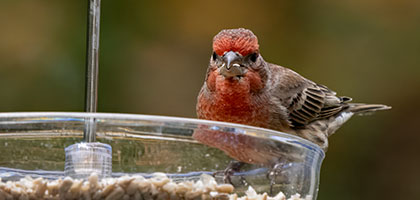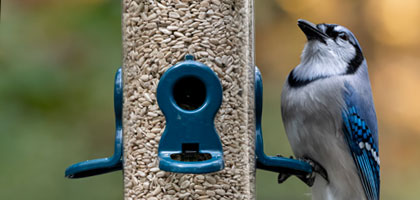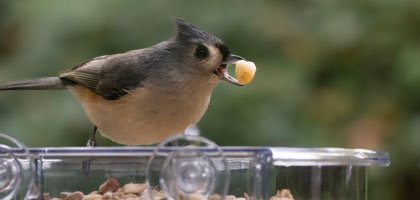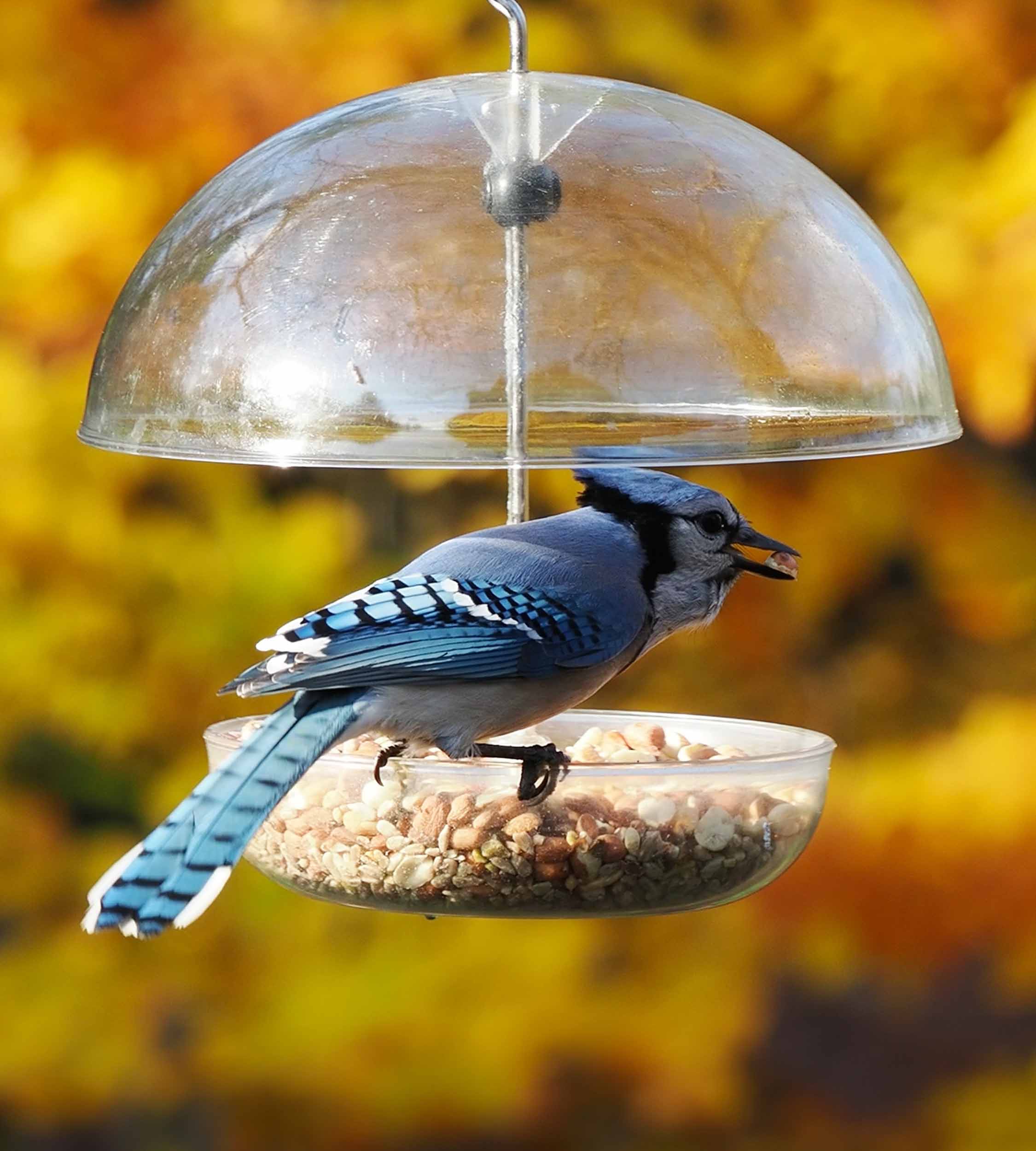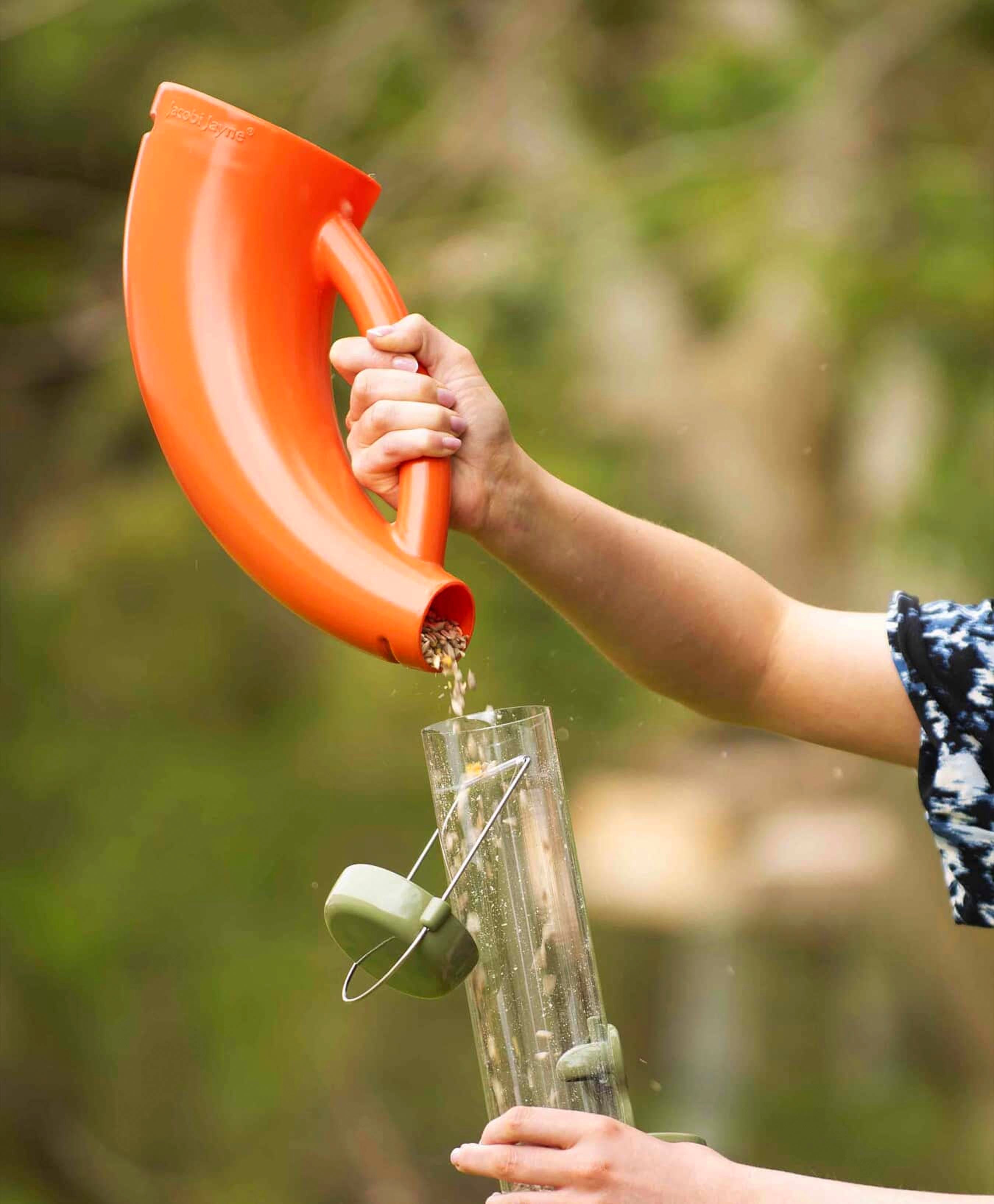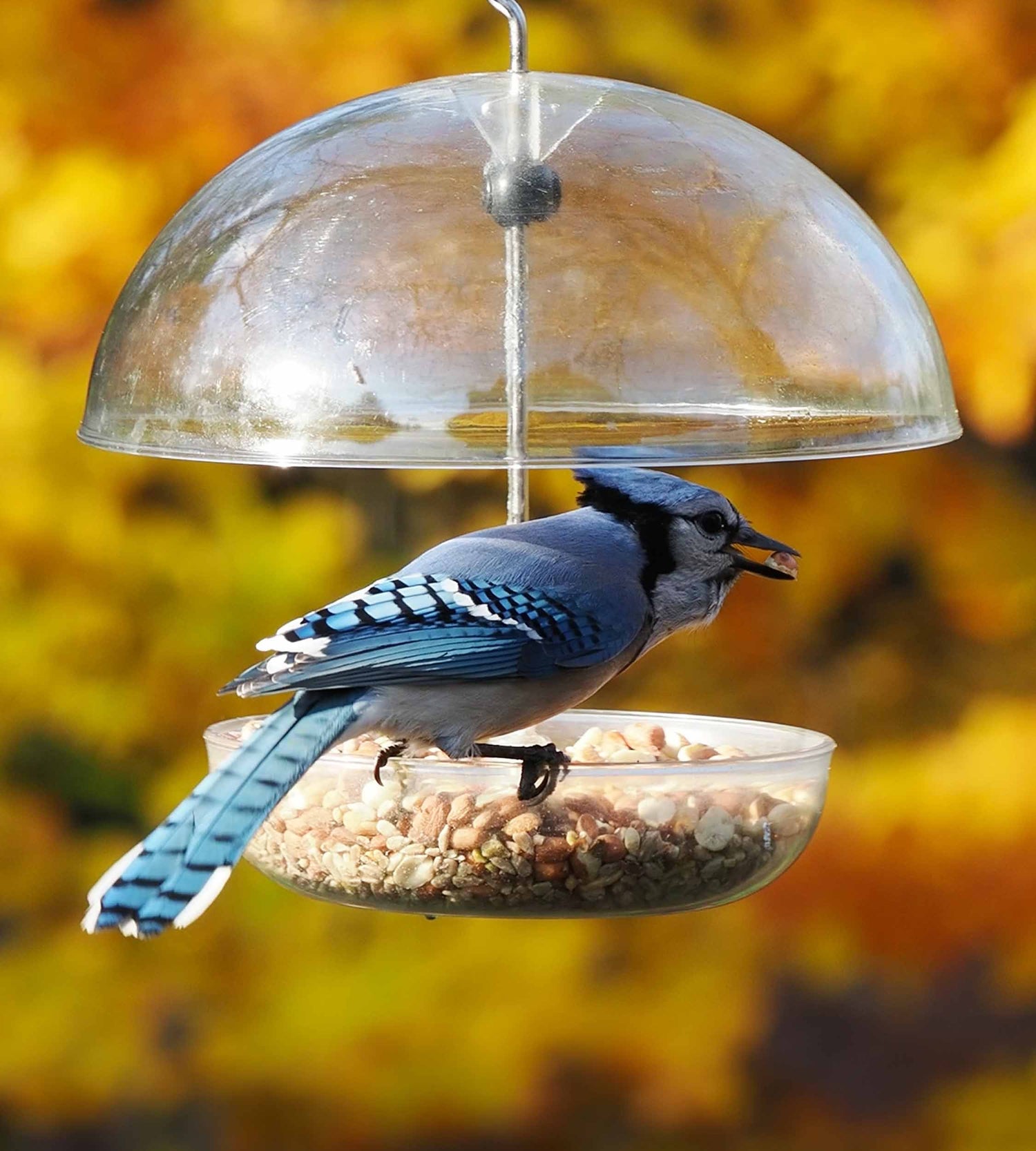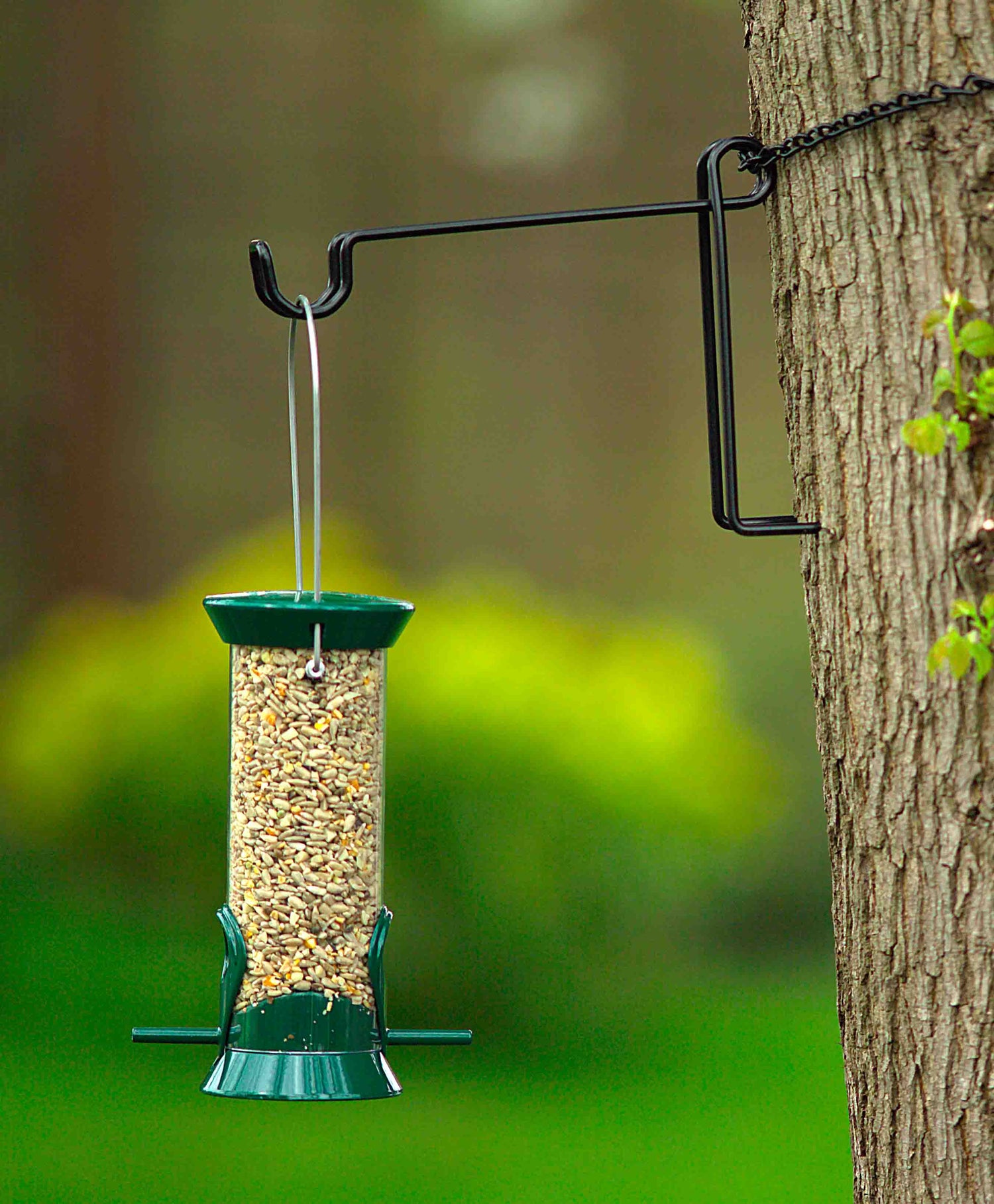As a dog owner, you may have wondered, "Can dogs safely eat bird food?" It's a common question, especially for those who also enjoy bird watching and feeding.
Bird food, from suet cakes to sunflower seeds, is designed for our feathered friends. But what happens when your curious canine gets a taste?
Understanding the dietary needs of dogs is crucial. Bird food is not formulated for dogs and may contain harmful ingredients.
From peanuts to nyjer seeds, each bird food item carries its own risks for dogs. Some may cause choking, while others offer little nutritional value.
In this article, we'll delve into the world of bird food and its impact on dogs. We'll explore the potential risks, preventative measures, and what to do if your dog consumes bird food.
Join us as we navigate the intersection of bird feeding and dog safety, providing you with the knowledge to keep your furry friend healthy.
Understanding Dog Nutrition and Bird Food Ingredients
Dogs have distinct dietary requirements compared to birds. Their nutrition involves balanced proteins, fats, carbohydrates, and various essential nutrients. Bird food, on the other hand, is tailored to meet the needs of birds, not canines.
Common ingredients in bird food include seeds, nuts, suet, and sometimes fruit. Each of these can impact your dog's health differently. While some may be harmless in small amounts, others could pose significant risks.
Seeds like sunflower or nyjer are popular in bird feeders. Sunflower seeds may seem benign but their shells can be problematic. They pose a choking hazard or may cause intestinal blockages in dogs.
The presence of nuts, such as peanuts, complicates the situation further. Peanuts should be unsalted and unflavored if given to dogs but are often heavily treated in bird mixes.
Suet cakes and balls, made from animal fat, are appealing to birds like chickadees and woodpeckers. However, their high fat content can cause digestive issues or pancreatitis in dogs.
Here's a quick list of common bird food ingredients and their potential effects on dogs:
- Sunflower seeds: Choking hazard, blockage risk.
- Peanuts: Safe in moderation, must be unsalted.
- Suet cakes: High fat, potential for pancreatitis.
- Nyjer seed: Non-toxic, little nutritional benefit for dogs.
Understanding these ingredients helps in making informed choices to keep your dog safe and healthy.
The Risks of Dogs Eating Bird Food
Dogs are naturally curious and may find bird food enticing. The aroma and taste can lead them to consume what isn’t meant for their digestion. While a small nibble may not seem harmful, regular or large amounts can pose risks.
One major concern is the high-fat content present in many bird foods. Suet cakes and pellets are rich in fats which can lead to obesity and pancreatitis in dogs if consumed frequently.
Bird seeds can also cause trouble. The shells of sunflower seeds and similar seeds can get lodged in a dog’s throat. This presents a choking risk or could lead to severe digestive blockages.
Then, there’s the matter of potential toxins. Some bird food mixes contain seeds or other elements that are toxic to dogs. Grapes, for example, commonly found in some blends, are hazardous for dogs.
Moreover, mold and bacteria can thrive in bird feeders that are not maintained. When consumed, these can cause sickness in dogs, leading to stomach upsets or worse.
Lastly, bird food may contain chemicals or pesticides not intended for canine consumption. These additives can lead to poisoning or allergic reactions in dogs.
Here’s a concise list of health risks from dogs eating bird food:
- Pancreatitis and obesity due to high-fat content.
- Choking hazards and intestinal blockage from seeds.
- Toxicity from harmful ingredients like grapes.
- Illness from molds or bacteria in old bird food.
- Poisoning from pesticides and additives.
Protecting your dog involves being aware of these dangers and taking steps to prevent accidental ingestion.
Specific Bird Food Items and Their Safety for Dogs
Several bird food items attract attention from curious canines. While some may seem harmless, they can cause problems if not managed carefully. Understanding which items pose risks is crucial for ensuring your pet's safety.
Common Bird Food Items:
- Suet Cakes: High in fat, these are popular with birds like woodpeckers.
- Sunflower Seeds: Often used in feeders, appealing to a wide range of birds.
- Peanuts: Loved by bluejays and other large birds.
- Nyjer Seed: A favorite for finches.
- Mealworms: Fed to insect-loving birds.
- Fresh Fruits: Offer a treat for birds but may include dangerous types for dogs.
Unsafe Bird Food Items for Dogs:
- Suet Cakes: Too rich and fatty, leading to potential health issues like pancreatitis in dogs.
- Sunflower Seeds with Shells: Could cause choking or digestive problems if dogs ingest them.
- Certain Fruits: Grapes and raisins can be extremely toxic and should be avoided completely.
Safe Bird Food Items for Dogs:
- Peanuts: Can be safe if plain and given in moderation. Avoid salted or flavored varieties.
- Certain Fresh Fruits: Some fruits like apples or berries (seedless and in moderation) can be offered occasionally.
Nyjer seeds and mealworms, while not harmful, don’t provide nutrition beneficial to dogs. They can still lead to an unbalanced diet if consumed in quantity.
When analyzing bird food safety for dogs, note that inappropriate or excessive consumption can disrupt a dog’s balanced diet. Recognizing these specific items and their risks helps prevent unfortunate incidents.
Bird food components may attract diverse avian species but are not suitable as snacks for dogs. As such, always supervise and control access to bird feeding areas to shield your pet from potential harm.
Preventing Accidental Ingestion of Bird Food by Dogs
Dogs are naturally curious and may be attracted to bird feeders. Preventing access is key to avoiding accidental ingestion. With some simple steps, you can protect your dog from consuming bird food.
Tips to Keep Bird Feeders Out of Dogs' Reach:
- Elevate Feeders: Place feeders high enough that dogs cannot reach them, even when they jump.
- Use Window Feeders: Install feeders on windows out of a dog’s line of sight.
- Secure Feeders: Ensure feeders are firmly attached and cannot be knocked over by dogs.
- Enclosed Feeders: Consider enclosed feeders that restrict open access to seeds and bird food.
- Regular Monitoring: Regularly check on feeding stations to ensure they remain out of reach.
A properly managed bird feeding area allows both birds and your dog to enjoy the outdoors safely. By following these precautions, you can reduce the risk of your pet getting into food intended for birds.
Supervision is also vital. Keep an eye on your dog when near bird feeders, especially in new environments. With a few careful adjustments, you can ensure that bird watching remains a risk-free activity for your furry friend.
What to Do If Your Dog Eats Bird Food
If your dog manages to eat bird food, don't panic. Observe your dog closely for any signs of distress or abnormal behavior. This will help you assess the situation promptly.
Check for symptoms like vomiting, diarrhea, or lethargy. These signs could indicate an adverse reaction. If any symptoms persist or worsen, contact your veterinarian immediately.
Try to determine what type of bird food was consumed. This information can be crucial for your vet. Certain ingredients, like suet or moldy seeds, can be more harmful than others.
Remain vigilant after the incident. Your dog's health is the top priority. Stay in touch with your vet, who can provide guidance tailored to your pet's needs.
Alternatives to Bird Food for Dogs
Providing safe and nutritious alternatives to bird food is essential for your dog's health. Offering them healthy options can keep their diet balanced and interesting.
Dogs can enjoy a variety of fruits and vegetables. These alternatives are not only safe but also beneficial. They can offer essential vitamins and minerals.
Here's a list of dog-safe options to consider:
- Apples (remove seeds)
- Carrots
- Blueberries
- Bananas
- Cucumbers
Introduce these foods in moderation to avoid digestive upset. Always wash fruits and vegetables thoroughly before serving them to your dog. This helps ensure they remain free from harmful residues.
It's important to remember that any dietary changes should be gradual. Monitor your dog's reaction to new foods and adjust accordingly for optimal health.
Conclusion: Balancing Bird Watching and Dog Safety
Bird watching can be a rewarding experience, even with a dog in the home. With careful planning, you can enjoy this hobby without compromising your dog's safety.
Keep bird feeders out of your dog’s reach and provide them with safe food alternatives. This ensures both a healthy pup and a thriving bird habitat.
